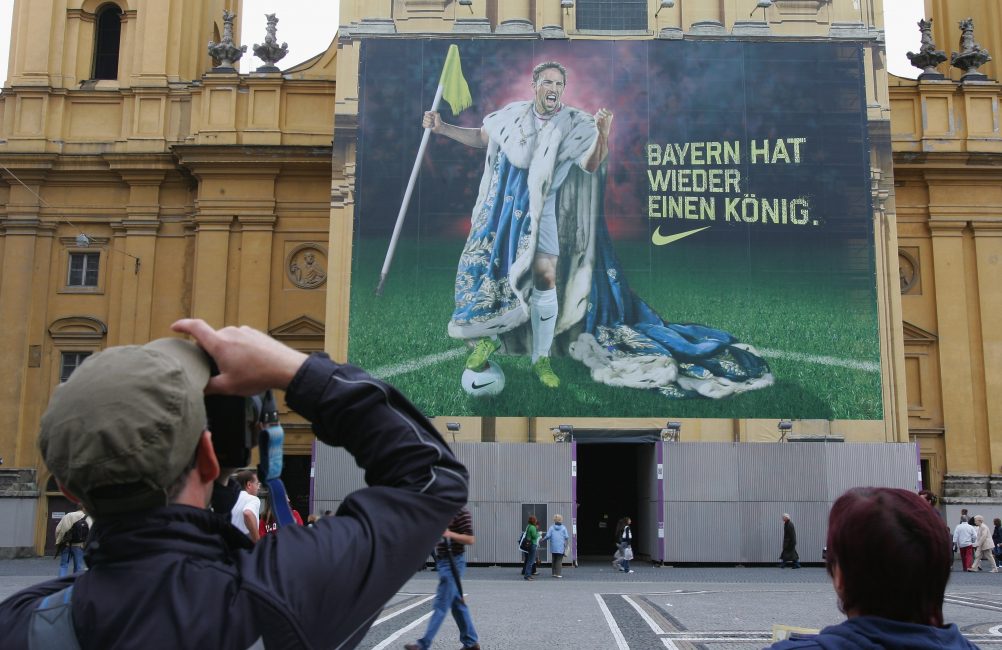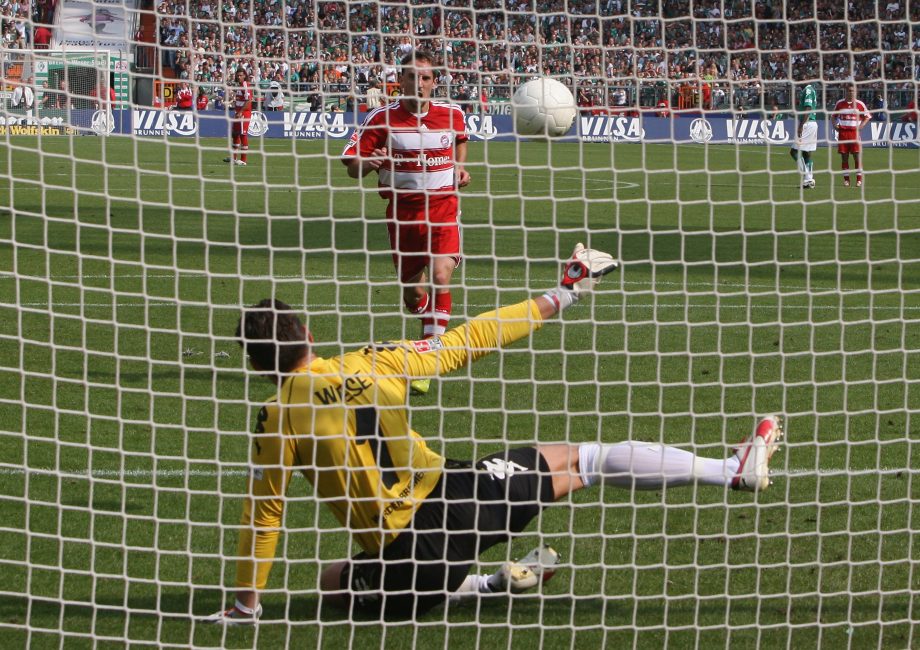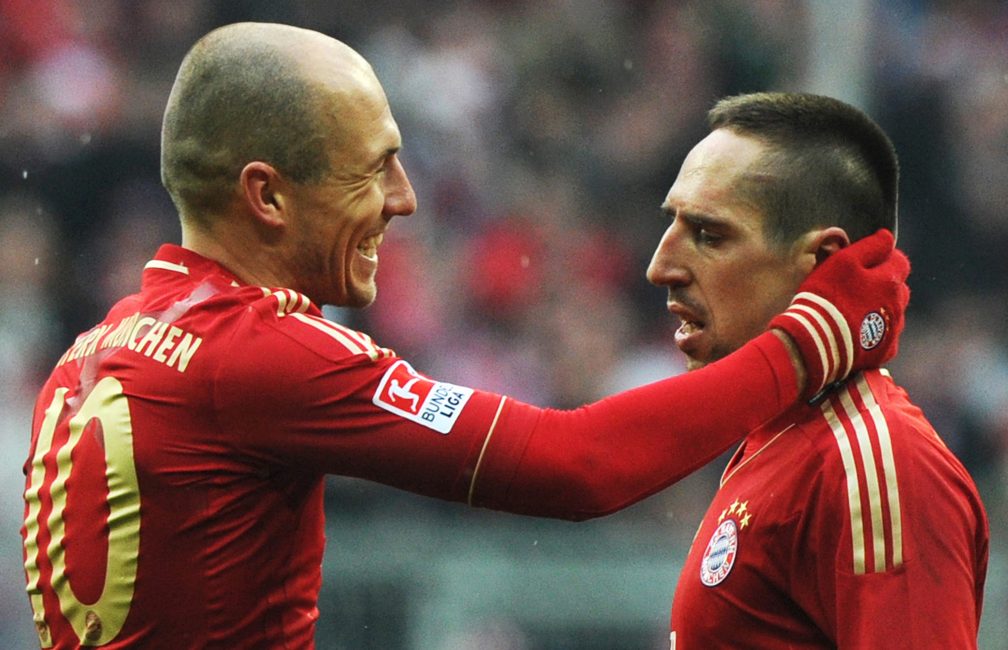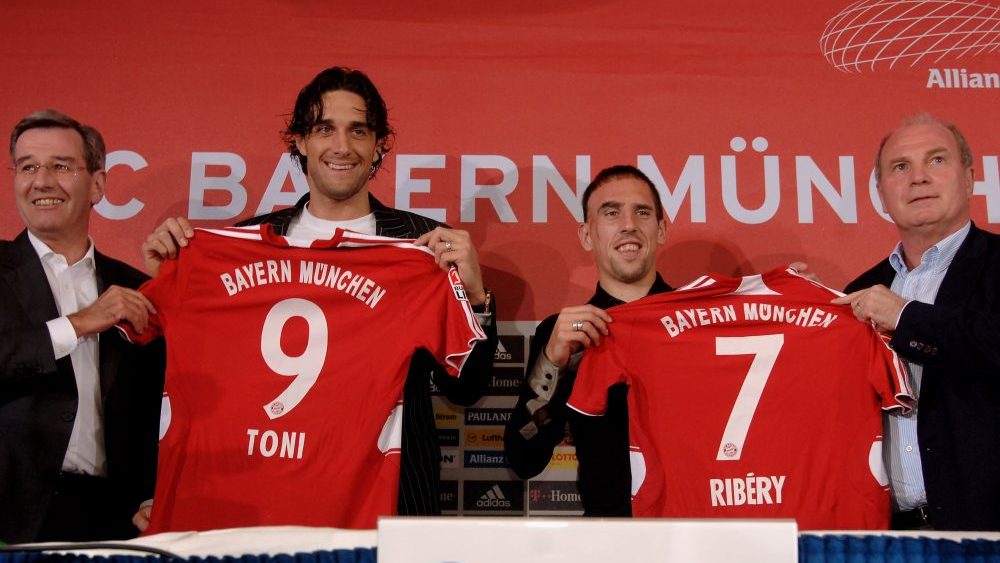Round-Up: Ten years a king
At the end of the 2006/07 season, the mood in Munich was deflated. In the two previous years, the double had been won both times under Felix Magath’s stewardship. Yet as they went into the winter break having been knocked out of the German Cup and were in danger of missing out on Champions League qualification, ‘Quälix’* was dismissed and replaced by his predecessor Ottmar Hitzfeld.
*The nickname ‘Quälix’ comes from a combination of Magath’s first name and the German verb ‘quälen’, which means ‘to torture’. This was due to his reputation for being a hard task-master; a reputation which would follow him to Fulham later in his career.
However, the manager of the 2001 team that won the Champions League also failed to lead the Rekordmeister to qualification for the very same competition. And so Bayern, for the first time since 1994/95, missed out on qualification for the grandest stage in Europe.
Farewell to the Rekordmeister
In the media landscape in Germany, Bayern were seen as being out for the count at the time, and articles were written about the supposed end of the Reds’ dominance of national football. Between the lines, you could also read the malice in some headlines. This was also because Bayern were unable to sign some of their apparent targets.
“Nobody wants to go to Bayern”, was the headline from n-tv for example when Wesley Sneijder and a certain Franck Ribéry, who had both been on Bayern’s wishlist “for months”, rejected the Rekordmeister.
In spite of the daily crisis report in the press, the Rekordmeister would then begin a transfer offensive that was unusual in those times. In total, with Marcell Jansen, José Ernesto Sosa, Jan Schlaudraff, Hamit Altintop, the returning Zé Roberto, Miroslav Klose, Toni and Ribéry, who Bayern did indeed snap up in the end, eight players for a total of around €70 million came to the Bavarian capital. And none of them shaped the club like the Frenchman.
A typical Hoeneß transfer
All of Europe’s top clubs were interested in the young midfielder, who was under contract at Olympique Marseille, after he got the chance to impress at the 2006 World Cup.

(Image: Alexander Hassenstein / Bongarts / Getty Images)
Bayern chief Uli Hoeneß managed, through close contact with Marseille president Papa Diouf, to generate an advantage for Bayern in the negotiations. At the time he confidently explained that if Marseille were going to sell Ribéry, then “they will speak to us too”. Such little personal accords with international club heads were all part of the current Bayern president’s hobby horse.
On the 7th of Juni 2007 when Bayern were able to present the lively French winger with the number 7, which had just become free due to Mehmet Scholl retiring in May, Hoeneß was “proud to bring two world-class players to Munich”. On top of that, Bayern had just succeeded in signing an internationally-renowned young player. Here Ribery’s personality, not easy to describe, was also certainly instrumental.
A regal transfer
There were two reasons that made Ribéry’s signing perhaps the most important in Bayern’s history. Firstly he was at a level that the Bundesliga hadn’t seen in the previous years.
Widespread opinion dictated that Thomas Schaaf’s Werder Bremen, built around the playmaker Diego, played the most beautiful football in the league. The Brazilian had contributed to 27 goals the previous season, and so had a big hand in Bremen coming in third place.
It was precisely those same men from Bremen who would host the strengthened Rekordmeister on the second matchday, with Miroslav Klose, Germany’s Footballer of the Year for 2007, also having been convinced to swap the green of Bremen for the red of Munich.
In the league cup before the start of the league season, Hitzfeld’s men had already beaten their opponents 4-1. An outstanding Ribéry scored twice and set up another. With that in mind, Bremen wanted to take revenge on home turf at the Weserstadion, with Diego back in the side to pull the strings. The Brazilian had been missing through injury in the league cup.
Yet Werder were mercilessly stream-rollered by the Rekordmeister. Above all, the new man from Marseille left a resounding impression. The impression that he was a class above any player in the Bundesliga. In the 31st minute he put Toni clean through on the left side of the penalty area, before Pasanen brought the Italian down. Ribéry stepped up to the spot and converted it cheekily with a Panenka down the middle, over Tim Wiese diving to the corner.

(Image: Alexander Hassenstein / Bongarts / Getty Images)
However, the crowning glory would come in the build-up to the third goal. After a Bremen corner, the ball comes to the Frenchman about 18 yards out from his own goal. He takes the ball down on his chest, and juggles it over the right foot of the baffled Schulz. After a short dribble he sees Toni, who plays it on to Altintop, who makes it 3-0. Andreas Ottl’s lovely volley to make it 4-0 should not be forgotten either.
A stroke of luck for Bayern’s offense
Just shortly after the game, president Franz Beckenbauer called Ribéry a “stroke of luck for Bayern”. At the time he had no idea how right he was. In his first season, the winger contributed to an unassailable 39 goals in 46 games.
In doing so, he took Bayern to a new level. Even though the semi-final against Zenit St. Petersburg was the end of the road in the UEFA Cup, Bayern were able to celebrate at the end of the season with the clinching of the double. The swansong for the men from Munich had once again been premature.
The most important abilities that Ribéry brought with him were his creativity and dribbling strength. These two attacking features had been lacking in the team in the previous dull years. Scholl was getting on and others weren’t able to impress at that level either. The signing of the Frenchman was to be the beginning of the path on which Bayern would be able to compete against top teams once more.
Another effect was that a new hype began to swirl around Bayern and Munich. For example, his personal sponsor Nike hung a huge Ribéry poster on the dress of Bayern’s King Ludwig II at Stephanskirche on Munich’s Odeonsplatz. The new man had arrived in Munich and Munich was happy to have an international star in its ranks.
Ribéry as the key to Robben
The signing of Ribéry also represented something of a bridge transfer to further signings like that of Arjen Robben. Without the style and quality of the Frenchman which brought Bayern back onto the international radar, the Rekordmeister would probably not have been interesting for players known throughout Europe.

(Image: Christof Stache / AFP / Getty Images)
Just as Ribéry helped get Robben to Munich, so too did Robben help Ribéry in his personal development. After the Frenchman had dominated the league almost at will in his first season, opposing defences were able to adapt better and better to his playing style in the following years. Already in the following season he had to contend with two or even three markers. The signing of Robben made that tactic obsolete. If the opposition only focused on Ribéry’s flank, they were brutally punished by the Dutchman on the other. Because of that, both players had more room to work with.
Top clubs enticed the Frenchman
If Ribéry’s transfer was already important enough, his contract extension at Bayern in 2010 for five more years was a sign to international rivals. Just after his first outstanding season in red and white, the midfielder was chased by all of Europe’s top clubs. He himself admitted in interviews that he had his pick of clubs: “In 2008 or 2009, all big clubs wanted me, Juventus, Inter, Milan, Barca, Real, Chelsea, Manchester. Obviously I considered a move”, Ribéry would later go on record as saying.
Yet in the end he stayed at Bayern and so solidified their standing as a club who no longer had to sell players. After the painful departure of Michael Ballack in 2006, that was a big turning point. They were also no longer reliant on money from big clubs. The status of being a top level finishing school, which for example Borussia Dortmund are having to fight with today, was finally laid to rest.
Certainly, the close relationship between Ribéry and Hoeneß also benefitted Bayern here. A relationship that also survived crises, like Ribéry’s affair with an underage prostitute. The backing that the Frenchman received for his off-the-pitch escapes played a decisive role.
And the rest is history. With Franck Ribéry, Bayern won a total of seven German titles, of which five were won since 2013. The year 2013 was certainly the most successful. Alongside the treble with the club, Ribéry was awarded European Footballer of the Year. The first individual award for a Bayern player since Stefan Effenberg in 2001, who picked up a previous version of that same award.
Next year, Ribery will enter his eleventh season for Bayern, and so is the longest-serving player in the squad. With the upcoming end of his current contract, it could also be his final season.
Let’s have a look at the links for this week
Scatter graphics: Bundesliga, 2016/17 | Experimental 3-6-1
Scouting Bayern’s new recruit Sebastian Rudy | Matthew Büning | Bayern Central
Ancelotti’s first season was not horrible | Susie Schaaf | Bayern Central
Recent Miasanrot articles
The breakthrough of Philipp Lahm | Tobias | Sam




 June 8, 2017
June 8, 2017 




